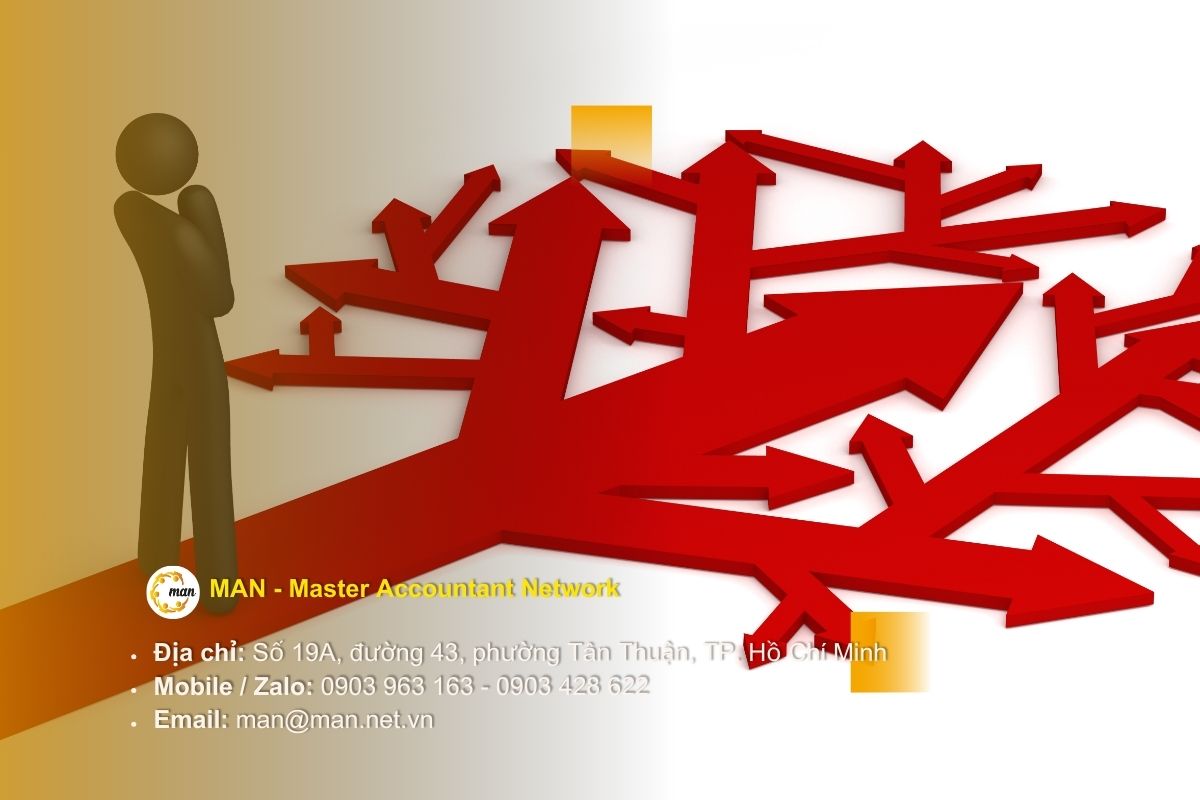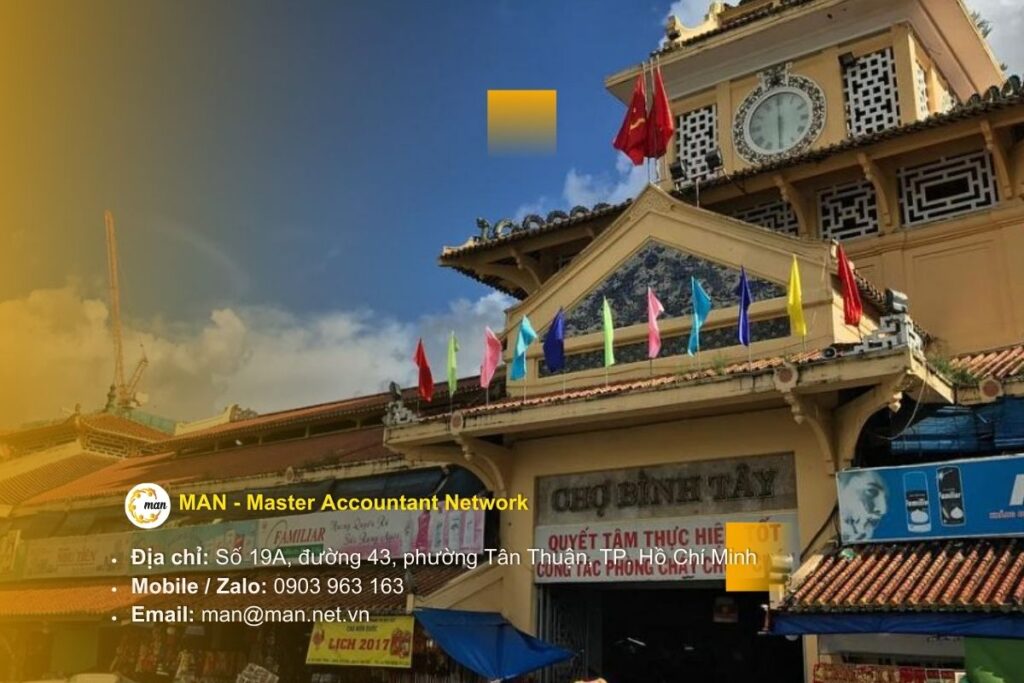Incorrect pricing in related-party transactions not only puts businesses at risk of being charged corporate income tax (CIT) but also entails many legal consequences and reputational risks. In the context Decree 132/2020/ND-CP With OECD guidelines tightening, accurate transfer pricing has become a matter of survival.
What is mispricing in related party transactions?
Incorrect pricing in affiliate transactions is the determination by an enterprise of the value of goods, services, assets or costs arising in a relationship with an affiliated party that is not in accordance with the arm's length principle. In other words, the transaction price is set significantly different from the price that independent parties would apply under similar conditions in the market.
According to Decree 132/2020/ND-CP and OECD guidelines, all transactions between related parties must comply with market principles. When a business misprices, whether intentionally or unintentionally, it can lead to:
- Shift profits to a low-tax country or affiliate.
- Falsely declaring expenses, reducing taxable income in Vietnam.
- Distorting financial data, leading to suspicion from tax authorities and investors.
Characteristics of mispricing in related party transactions
To identify mispricing in related party transactions, businesses can rely on some common signs. These signs not only help tax authorities easily detect but also serve as a warning for businesses to proactively review and adjust:
- Abnormally low selling price: The business sells goods/services to the affiliate at a price much lower than the market price.
- Excess Expenses: Recording administrative expenses, royalties, and loan interest from parent companies or affiliates that exceed reasonable thresholds.
- Abnormal profit margin: Profits at the subsidiary in Vietnam are too low, while the parent company or affiliate in another country enjoys high profits.
- Wrong valuation method use: Not applying or misapplying OECD standard comparison methods (CUP, RPM, CPM, TNMM, PSM).
Identifying mispricing is just the first step. More importantly, businesses need to understand the legal consequences and tax risks that may arise when authorities detect this behavior. The impacts do not stop at adjusting tax obligations, but also entail many consequences for finance, reputation and corporate governance.
Legal and tax consequences of mispricing in related party transactions

Mispricing in related party transactions is not only a technical error in financial reporting, but also entails many serious legal and tax consequences. According to Decree 132/2020/ND-CP and OECD standards, all related party transactions must comply with market principles. When violating, enterprises may face the following consequences:
Board: Legal consequences of mispricing in related party transactions
| Consequence | Content | Impact |
| Corporate income tax collection. | The tax authority readjusts the transaction value according to market price, recalculates taxable income and requests additional payment of corporate income tax. | Businesses incur large tax obligations, directly affecting profits and cash flow. |
| Late payment penalties and administrative sanctions. | In addition to the tax arrears, the enterprise must pay a late payment penalty of 0.3%/day. | Increased costs, reduced reputation, may be recorded as violating tax laws. |
| Audit and tax inspection risks. | The company will be put under special supervision, have all its records audited and be subject to in-depth tax inspection. | Interruption, affecting production and business activities. |
| Reputation impact. | The conclusion that violations of mispricing in related-party transactions affect the trust of partners, investors and management agencies. | Difficult to expand the market, limited access to capital. |
Thus, the above table shows that mispricing in related-party transactions not only causes businesses to be subject to tax arrears but also has many potential legal consequences and impacts the business's image in the eyes of partners, investors and management agencies.
After understanding the serious consequences that mispricing in related-party transactions can cause, the next important thing is to identify the root cause. From there, analyzing the cause correctly will not only help businesses avoid the risk of tax collection but also create a foundation for building a transparent, sustainable and legally compliant pricing mechanism.
Causes of mispricing in related party transactions
So specifically, what are the reasons that make businesses prone to mispricing in related party transactions? Let’s join MAN – Master Accountant Network to delve into each common cause that leads to mispricing in related party transactions.

Lack of understanding of legal regulations
In reality, many businesses still do not fully understand the provisions of Decree 132/2020/ND-CP, Decree 20/2025/ND-CP (amended and supplemented by Decree 132/2020/ND-CP) and OECD transfer pricing guidelines on related party transactions. Because of that, many businesses have incomplete records, chosen the wrong method, or omitted reporting obligations (CbCR, valuation records).
For example: Company A's board of directors thought that internal transactions did not need to be clearly stated on the basis of market comparison, so they did not keep comparison documents or function-risk-asset (FAR) analysis.
Consequences: When inspected, businesses cannot provide documents proving prices according to the principle of independence, leading to adjustments, tax collection and administrative fines.
Failure to comply with the arm's-length principle
This principle requires that the price or terms of a transaction between related parties be equivalent to the price or terms that independent parties would accept. Violations occur when a business applies preferential terms, prices or profit sharing between related parties.
For example: Company A (Vietnam) sells to an affiliated company B abroad, at a price lower than the market price to transfer profits to B.
Consequences: Tax authorities adjust prices, recalculate taxable profits, leading to additional corporate income tax collection; in addition, increasing the risk of cross-border audits (BEPS, CbCR).
Intentionally transferring prices to reduce tax obligations
Some businesses design transaction chains, structures or internal charges to shift profits to legal entities in low-tax countries.
For example: Setting up high “software or copyright fee” revenue from a Vietnamese company to a copyright owner company in Hong Kong (tax haven) while the real service value is not commensurate.
Consequences: If discovered, in addition to tax collection and heavy fines, businesses may be seriously investigated for tax evasion, affecting criminal liability in case of crime.
Identifying the cause helps businesses understand why risks arise, but more importantly, they need to know how to handle and prevent them. To limit the risk of being charged back taxes due to mispricing in related-party transactions, businesses need to apply appropriate preventive measures.
Measures to prevent mispricing in related party transactions

To limit the risk of tax collection due to mispricing in related-party transactions, enterprises need to synchronously deploy many solutions, combining legal compliance, internal management and reference to international OECD standards. Learn about the measures through the table below:
Board: Measures to prevent mispricing in related party transactions
| Measure | Explain | For example | Recommendations |
| Apply the correct valuation method according to regulations | Decree 132/2020/ND-CP and OECD provide guidance on 5 methods (CUP, RPM, CPM, TNMM, PSM). Choosing the wrong method is the cause of mispricing in related party transactions. | In the normal trading of goods, priority should be given to the comparable uncontrolled price method (CUP) instead of applying the net profit margin method (TNMM). | Perform a function-asset-risk (FAR) analysis before selecting a method, with appropriate supporting documentation. |
| Prepare complete declaration documents and determine price | Local file, master file, CbCR are important evidence to prove the validity to tax authorities. | Enterprises have copyright transactions but lack contracts and comparative data, leading to cost adjustments | Keep records annually, update with new comparison data. |
| Conduct periodic internal reviews | Helps detect discrepancies before tax authorities inspect, avoiding the risk of being charged back. | Review quarterly profits, compare margins with industry averages to detect abnormalities. | Establish internal control procedures for related party transactions. |
| Consult with experts in the field and update international standards | Complex related party transactions (intangible assets, management services, related finance) require experts to reduce errors. | Some corporations sign APAs with tax authorities to stabilize pricing policies for many years. | Update OECD guidance (BEPS Actions), consider applying APA for sensitive transactions. |
Mispricing in related-party transactions is not only caused by the selection of inappropriate methods, but also by the lack of supporting documents and weak internal control procedures. Proactively applying preventive measures not only helps businesses minimize the risk of tax collection, but also strengthens their reputation, transparency and sustainable development in the long term.
To help businesses have a more comprehensive and systematic view, below is a summary table of key points on tax collection due to mispricing in related-party transactions.
Board: Summary of main points on tax collection due to mispricing in related party transactions.
| Main content | Meaning | Key Points |
| The concept of mispricing in related party transactions | Enterprises apply prices, costs and profits that are not in accordance with the principle of independence, leading to the risk of being regulated. | It is the direct cause of mispricing in related party transactions that causes tax authorities to collect corporate income tax and impose administrative fines. |
| Common causes | Lack of supporting documents, incorrect valuation methods, over-reliance on transactions with parent companies, and failure to update market data. | Leading to a large difference in profits compared to the industry, giving rise to transfer pricing suspicions. |
| Consequences for businesses | Being charged with back taxes, administrative fines, late interest, affecting reputation and partnership. | Some typical cases: Metro (507 billion), Coca-Cola (821 billion), SABECO (408 billion). |
| Preventive measures | Apply correct valuation methods, prepare documents (Local file, Master file, CbCR), conduct periodic internal reviews, consult experts, and build a culture of compliance. | Helps transparency, reduces collection risks, protects reputation and sustainable development. |
Conclude
Incorrect pricing in affiliate transactions Tax risk is not only a short-term tax risk but also a long-term strategic management issue for the enterprise. Typical cases such as Metro, Coca-Cola or SABECO show that tax authorities are increasingly tightening control and are ready to apply measures to collect and impose administrative fines with amounts up to hundreds of billions of VND.
Therefore, instead of "waiting for inspection to process", businesses need to proactively build a transparent pricing mechanism, prepare complete documents and apply the correct methods as prescribed in Decree 132/2020/ND-CP and OECD guidelines. This is not only to comply with tax obligations, but also to protect reputation, minimize legal risks and create advantages in the eyes of investors and partners.
Contact information MAN – Master Accountant Network
Address: No. 19A, Street 43, Tan Thuan Ward, Ho Chi Minh City
- Mobile / Zalo: 0903 963 163 – 0903 428 622
- E-mail: man@man.net.vn
Editorial Board: MAN – Master Accountant Network




